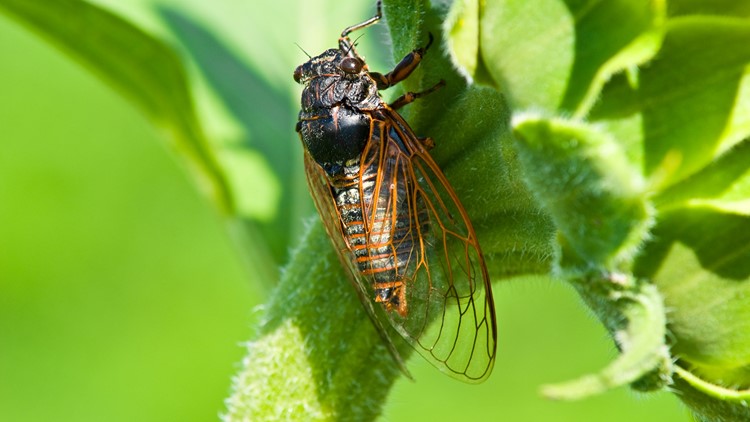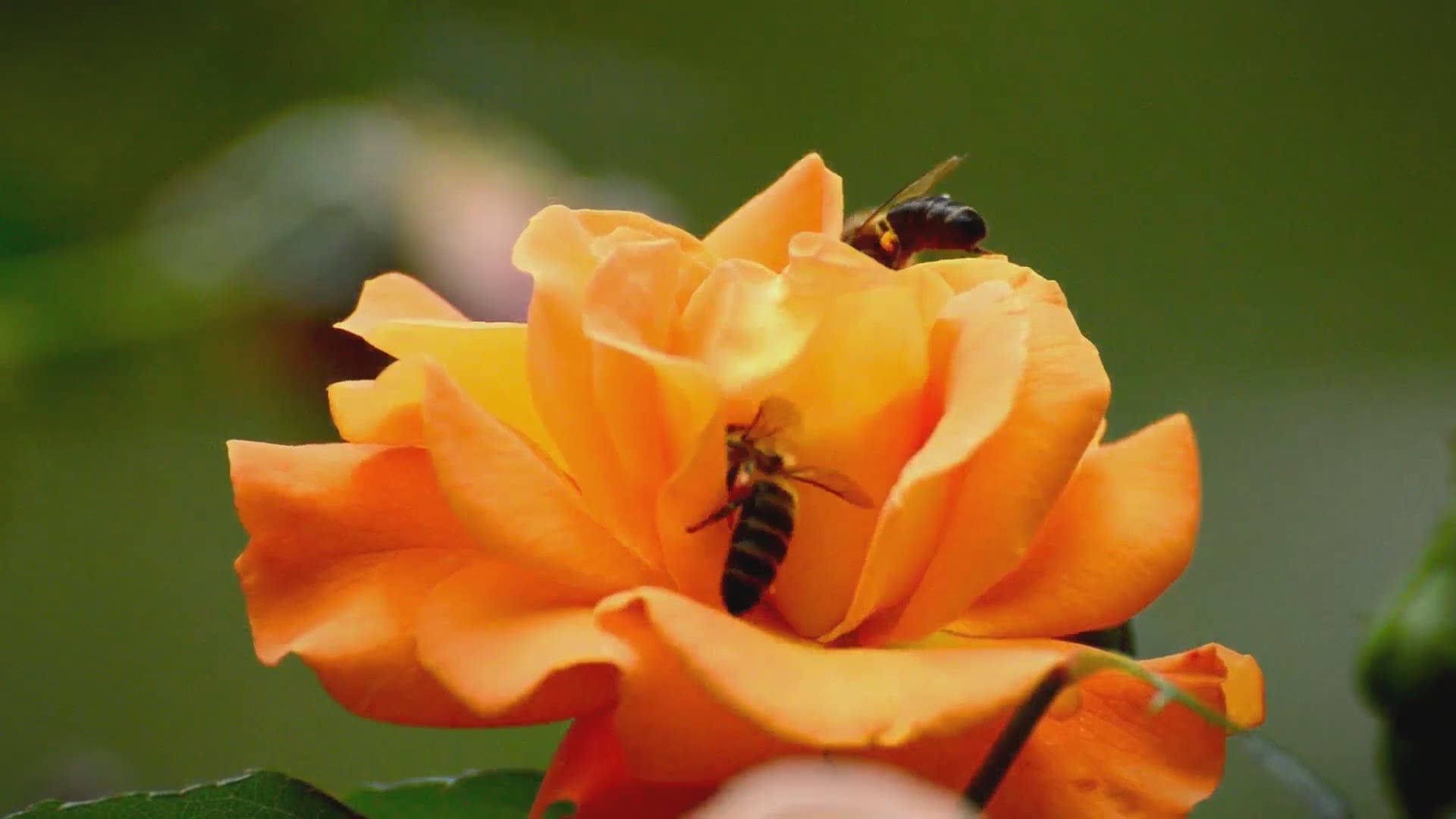ST. LOUIS — Thirteen-year cicadas were not expected to appear in the St. Louis area until 2024 but they’ve emerged four years early, according to experts who study cicadas around the country.
Scientists who study periodical cicadas were focused on the expected emergence of the 17-year cicada Brood IX in parts of Missouri along with southern Virginia, western Virginia and northwestern North Carolina.
On April 17, the first photographs of emerging cicadas were submitted to the Cicada Safari app, according to a press release.
Over the past couple of weeks, photographs have been received from known Brood XIX areas, according to Dr. Gene Kritsky, Dean of Behavioral and Natural Studies at Mount St. Joseph University in Cincinnati.
“Sometimes periodical cicada get their timing mixed up and may emerge early or late," said Dr. Kritsky, who has studied cicadas throughout his academic career. "So we are asking people throughout the Brood XIX range to submit cicada photographs to help us get a better understanding of this early emergence. Early emergences of 17-year are well documented, but such accelerations of 13-year cicada have not been widely reported.”
Brood XIX occurs in parts of 17 states from Kansas to Virginia and from southeastern Iowa to northern Louisiana, according to the release.
"Periodical cicadas are bugs of history," Dr. Kritsky said. "They are generational events, and many people use the emergence to mark the passage of time, recall key events in their lives and just remember where they were and what they were doing the last time the cicadas came out.”
Each photo or video sent to the Cicada Safari app is verified before posting which enables scientists to remotely monitor their emergence.
Facts about cicadas from Dr. Kritsky:
- Cicadas emerge after the soil temperature exceeds 64 degrees, usually in mid-May.
- Only male cicadas sing through sound-producing structures called tymbals on either side of the abdomen under the wings.
- Cicadas do not eat solid food but do drink fluids to avoid dehydration.
- Cicadas do not sting or bite, and do not carry diseases.
- Periodical cicada years are quite beneficial to the ecology of the region. Their egg-laying in trees is a natural pruning that results in increased numbers of flowers and fruits in the succeeding years. Their emergence from the ground turns over large amounts of soil, and after they die their decaying bodies contribute a massive amount of nutrients to the soil.
- Periodical cicadas are often incorrectly called locusts. Locusts are grasshoppers and cicadas are more closely related to aphids than grasshoppers.
More Local News
- Man indicted in connection to Islamic center fire in Cape Girardeau
- WWII veteran celebrates 99th birthday in St. Louis County
- St. Louis restaurant owner wants 'to-go' cocktails permanently
- Missouri schools granted more leniency on fall start dates
- Lion’s Choice launches frozen custard in to-go pints
- Inside a south county restaurant's unique interpretation of dining in the COVID-19 era




